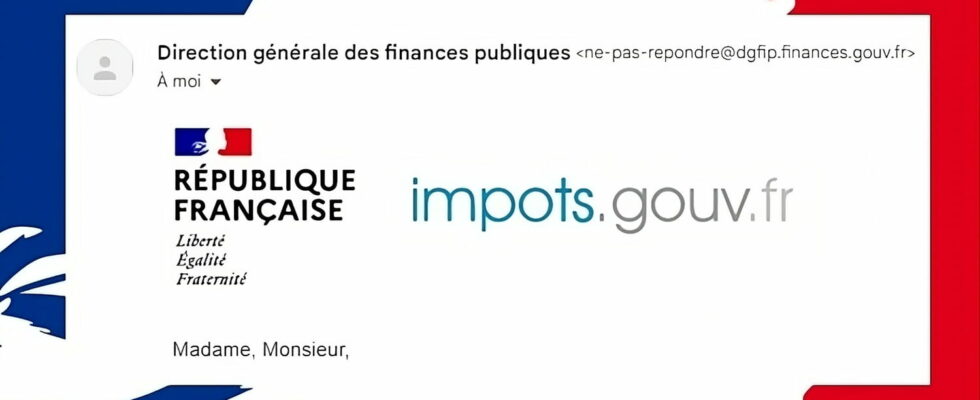Do not neglect this tax email: it is not a scam, but an official message from the General Directorate of Public Finances! And he has a very unpleasant surprise in store for you.
You may have already received an email from the tax authorities and thought it was a scam. However, some of these communications are perfectly legitimate, such as those indicating the opening of the tax return, the reimbursement of overpayment, or even… a tax adjustment. Indeed, since a recent decision by the Paris Administrative Court of Appeal, the tax authorities are now authorized to send adjustment notifications by email.
As reports the site DémarchesAdministratives.fr it all started from the story of a private couple. After a tax audit, the administration believes that they wrongly benefited from a tax reduction for several years. The tax authorities then sent them, in 2016, a simple email containing a link to the online platform Escale, on which the couple retrieved an official document informing them of the adjustment they were going to undergo.
The taxpayers, believing that only a registered letter with acknowledgment of receipt could validate such a notification, then went to court to contest the procedure and have the adjustment canceled. However, their request was rejected twice, first by the Administrative Court of Melun on October 21, 2022, then by the Administrative Court of Appeal of Paris on June 28, 2024.
In their successive decisions, the judges affirmed that the electronic transmission of a tax adjustment notice was entirely valid. The only condition to be respected is that the method of sending used allows proof of receipt by the recipient. However, as the Escale platform records the opening of the document, it offers tangible proof of receipt of the message. This case law therefore underlines that an email can have as much value as a postal letter.
This legal decision therefore marks a notable development in relations between the administration and citizens, with practical consequences for taxpayers. The tax authorities can use electronic means of communication, provided that the proof of receipt is solid, as is the case with the Escale platform. For taxpayers, it is therefore more essential than ever to carefully check any email received from the tax authorities, while being wary of potential attempts at fraud.
So, if you receive a secure link or proper email notification in the future, it is important to treat it seriously. And if in doubt, contact the tax authorities directly to confirm the legitimacy of the message. This case reminds us of the importance of being vigilant in the face of new forms of administrative communication. Failure to respond to an email from the IRS could have financial consequences. Be attentive and responsive, because simple negligence could be costly.
